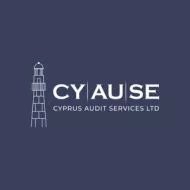- in United States
- within Tax topic(s)
- in United States
- with readers working within the Media & Information industries
- within Tax, International Law and Immigration topic(s)
The United Kingdom's decision to abolish its long-standing non-domiciled (non-dom) tax regime due to a mounting pressure and issues of fairness and transparency from the public, effective from April 2025, marks a significant shift in its tax landscape.
This change has prompted many high-net-worth individuals (HNWIs) to reassess their tax residency options.
Cyprus, with its favourable tax policies and strategic location, has emerged as a compelling alternative.
Understanding the UK's Non-Dom Regime Before the Changes
A UK Non-Dom was a UK resident whose permanent home - or domicile - for tax purposes was outside the UK.
A Non-Dom only paid UK tax on the money they earned in the UK. They did not have to pay tax to the UK government on money made elsewhere in the world (unless they pay that money into a UK bank account).
Understanding the UK's Non-Dom Regime After the Changes (April 2025)
From April 2025, the UK Non-Dom regime has been replaced with a residence-based system.
This means that many individuals currently classified as Non-Doms, who are also tax resident in the UK, will lose the foreign income protection reliefs they once enjoyed.
Instead, now, they will be subject to taxation on their worldwide income and gains as tax residents and residency will now serve as the primary determinant of tax liability.
All impacted individuals must reassess their tax positions and financial planning strategies in light of the impending changes.
The transition to the new regime is accompanied by a series of rules and measures aimed at mitigating the impact on affected individuals.
Who is likely to be Impacted with the Abolition of the UK Non-Dom Regime?
- Individuals who currently use any of the non-domicile rules including the remittance basis;
- Individuals who may be able to claim a domicile of origin or dependency other than the UK to prevent their non-UK assets from falling into the inheritance tax net;
- Individuals looking to move to the UK either temporarily or permanently.
Cyprus: A Tax-Efficient Alternative
Cyprus offers a non-domicile tax regime that is particularly attractive to those affected by the UK's changes.
Key benefits include:
Tax Exemptions: Non-domiciled tax residents in Cyprus are exempt from taxation on dividends and passive interest income for 17 years.
Capital Gains: Gains from the disposal of securities, including shares and bonds, are not subject to capital gains tax.
No Inheritance, Wealth, Estate Duty, Property Tax or Gift Taxes: Cyprus does not impose inheritance, wealth, estate duty, property or gift taxes, facilitating efficient estate planning since none of these are applicable in Cyprus.
No Tax on Retirement Gratuity and Special Tax Regime on Foreign Pension Income: individuals can choose to be taxed at a flat rate of 5%.
Low Corporate Tax Rate: A competitive corporate tax rate of 12.5% applies, with potential reductions through the Notional Interest Deduction (NID) regime.
Flexible Residency Options: Cyprus offers both a 183-day and a 60-day residency rule, accommodating various lifestyles and commitments.
Double Tax Treaty Network: Cyprus is party to more than sixty tax treaties, including one with UK, therefore Cyprus tax residents enjoy protection from double taxation due to these tax treaties.
Language: Everyone in Cyprus speaks fluent English including all governmental bodies.
International Community: There is a large international community living in Cyprus.
Business Centre: Cyprus is full of service providers and law firms with barristers and chartered accountants graduated from the best Universities in United Kingdom.
No need for a physical visit: Physical presence is not required, as business can be conducted remotely and through virtual means.
The Process
First: Become a Cyprus Tax Resident - Requirements
An individual who spends more than 183 days in Cyprus during a calendar year, would be considered as a Cyprus tax resident.
Cyprus also offers the Tax Residency option of the '60-day rule', for individuals that have significant travel commitments and are not in a position to spend more than 183 days in any specific country (including Cyprus).
To qualify as a tax resident under the 60-day rule, an individual must (to be met within the same tax year):
- Not reside in any other single state for over 183 days in the tax year;
- Not be tax resident in any other state;
- Reside in Cyprus for at least 60 days;
- Maintain a permanent residential property in Cyprus (owned or rented);
- Conduct business activities, be employed, or hold an office in a company tax resident in Cyprus provided that such an activity is not terminated by the end of the year.
Second: Apply for a Non-Domiciled Status
Once Tax Residency is established, complete and submit the related form to the Cyprus Tax Department.
Third: Cyprus Permanent Residence Permit
Non-EU nationals, including British and U.S. citizens, are required to obtain a residence permit if they intend to stay in Cyprus for more than 90 days. This permit grants them the legal right to reside in the country and, in the case of permanent residency, allows unrestricted access to Cyprus without the need for repeated immigration procedures.
Securing a residence permit is particularly important for individuals seeking to benefit from Cyprus's non-domicile tax regime, as it reinforces their ties to the country. It provides strong supporting evidence of tax residency, which can be crucial in dealings with both tax authorities and immigration officials.
For those pursuing long-term residency, the Cyprus Permanent Residence Permit offers a stable base within the European Union, especially attractive to high-net-worth individuals (HNWIs) and international investors.
To qualify for permanent residency, applicants must, among other requirements Invest a minimum of €300,000 (excluding VAT) in one of four approved categories:
- Residential or other types of immovable property: Purchase of a new house or apartment.
- Commercial Real Estate: Investment in other types of real estate, such as offices, shops, hotels, or related developments. This category allows for the purchase of resale properties.
- Share capital of a Cyprus company: Investment in the share capital of a company registered and operating in Cyprus.
- Units of a Cyprus-based Collective Investment Organization (e.g., AIF, AIFLNP, RAIF): Investment in units of Cyprus Investment Organizatoion of Collective Investments, such as Alternative Investment Funds (AIF), AIF with Limited Number of Persons (AIFLNP), or Registered Alternative Investment Funds (RAIF).
In addition to the investment, applicants must demonstrate a secure and steady annual income of at least €50,000 transferred from abroad to a bank operating in Cyrpus, which should be derived from sources outide of Cyprus and not from local employment, which increases by €15,000 for a spouse and €10,000 for each dependent child.
These investments and income requirements are designed to ensure that applicants have a stable financial foundation while contributing to the Cypriot economy.
Choose Cyprus
Relocating your tax residency is a decision that requires thoughtful planning and professional analysis to ensure both compliance and optimal financial outcomes.
Cyprus presents a compelling opportunity: with as little as 60 days spent annually on the island, the purchase of a permanent residence, and the development of business interests, high-net-worth individuals can benefit from Cyprus's favourable tax regime.
Combined with its strategic EU location, lifestyle advantages, and robust legal and financial infrastructure, Cyprus stands out as an ideal destination for wealth preservation, tax efficiency, and long-term stability, especially for those transitioning out of the UK's abolished Non-Dom regime.
The content of this article is intended to provide a general guide to the subject matter. Specialist advice should be sought about your specific circumstances.


